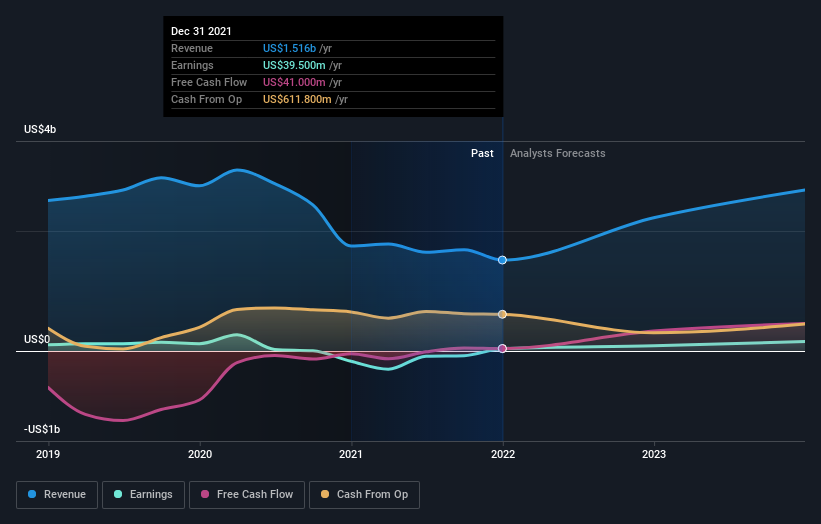Stock Analysis

While Trinity Industries, Inc. (NYSE:TRN) might not be the most widely known stock at the moment, it received a lot of attention from a substantial price increase on the NYSE over the last few months. As a mid-cap stock with high coverage by analysts, you could assume any recent changes in the company’s outlook is already priced into the stock. But what if there is still an opportunity to buy? Let’s examine Trinity Industries’s valuation and outlook in more detail to determine if there’s still a bargain opportunity.
Check out our latest analysis for Trinity Industries
What is Trinity Industries worth?
Trinity Industries is currently expensive based on my price multiple model, where I look at the company's price-to-earnings ratio in comparison to the industry average. I’ve used the price-to-earnings ratio in this instance because there’s not enough visibility to forecast its cash flows. The stock’s ratio of 70.39x is currently well-above the industry average of 26.29x, meaning that it is trading at a more expensive price relative to its peers. But, is there another opportunity to buy low in the future? Given that Trinity Industries’s share is fairly volatile (i.e. its price movements are magnified relative to the rest of the market) this could mean the price can sink lower, giving us another chance to buy in the future. This is based on its high beta, which is a good indicator for share price volatility.
Can we expect growth from Trinity Industries?

Investors looking for growth in their portfolio may want to consider the prospects of a company before buying its shares. Although value investors would argue that it’s the intrinsic value relative to the price that matter the most, a more compelling investment thesis would be high growth potential at a cheap price. With profit expected to more than double over the next couple of years, the future seems bright for Trinity Industries. It looks like higher cash flow is on the cards for the stock, which should feed into a higher share valuation.
What this means for you:
Are you a shareholder? TRN’s optimistic future growth appears to have been factored into the current share price, with shares trading above industry price multiples. However, this brings up another question – is now the right time to sell? If you believe TRN should trade below its current price, selling high and buying it back up again when its price falls towards the industry PE ratio can be profitable. But before you make this decision, take a look at whether its fundamentals have changed.
Are you a potential investor? If you’ve been keeping tabs on TRN for some time, now may not be the best time to enter into the stock. The price has surpassed its industry peers, which means it is likely that there is no more upside from mispricing. However, the positive outlook is encouraging for TRN, which means it’s worth diving deeper into other factors in order to take advantage of the next price drop.
Keep in mind, when it comes to analysing a stock it's worth noting the risks involved. Be aware that Trinity Industries is showing 3 warning signs in our investment analysis and 2 of those don't sit too well with us...
If you are no longer interested in Trinity Industries, you can use our free platform to see our list of over 50 other stocks with a high growth potential.
Valuation is complex, but we're helping make it simple.
Find out whether Trinity Industries is potentially over or undervalued by checking out our comprehensive analysis, which includes fair value estimates, risks and warnings, dividends, insider transactions and financial health.
View the Free AnalysisHave feedback on this article? Concerned about the content? Get in touch with us directly. Alternatively, email editorial-team (at) simplywallst.com.
This article by Simply Wall St is general in nature. We provide commentary based on historical data and analyst forecasts only using an unbiased methodology and our articles are not intended to be financial advice. It does not constitute a recommendation to buy or sell any stock, and does not take account of your objectives, or your financial situation. We aim to bring you long-term focused analysis driven by fundamental data. Note that our analysis may not factor in the latest price-sensitive company announcements or qualitative material. Simply Wall St has no position in any stocks mentioned.
About NYSE:TRN
Trinity Industries
Provides rail transportation products and services under the TrinityRail name in North America.
Proven track record average dividend payer.

